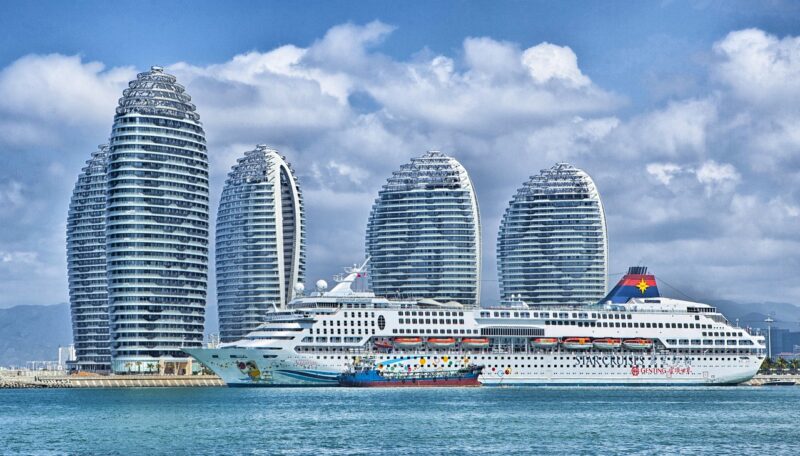The hospitality industry is constantly evolving, driven by changing consumer preferences, technological advancements, and global trends. As we look towards the future, several key trends are shaping the trajectory of the hotel industry. In this blog, we’ll explore the emerging trends that are revolutionizing hospitality and transforming the guest experience.
1. Embracing Technology for Seamless Experiences
Technology is playing an increasingly prominent role in shaping the future of hospitality. From mobile check-in and keyless entry systems to in-room tablets and virtual concierge services, hotels are leveraging technology to streamline operations and enhance the guest experience. Mobile apps allow guests to customize their stay, access hotel amenities, and communicate with staff conveniently, while smart room features provide personalized comfort and convenience.
2. Sustainability and Eco-Friendly Practices
As environmental awareness grows, sustainability has become a top priority for the hotel industry. Hotels are implementing eco-friendly initiatives such as energy-efficient lighting, water-saving fixtures, and waste reduction programs to minimize their environmental footprint. Many establishments are also sourcing local and organic products, reducing plastic usage, and implementing green building practices to create more sustainable and eco-conscious properties.
3. Personalization and Customization
Today’s travelers expect personalized experiences that cater to their unique preferences and needs. Hotels are investing in data analytics and guest profiling to deliver tailored experiences that anticipate and exceed guest expectations. From personalized welcome amenities and room preferences to curated recommendations for dining and activities, hotels are leveraging technology and guest feedback to create memorable and customized stays for every guest.
4. Wellness and Well-Being Initiatives
The wellness trend continues to gain momentum in the hospitality industry, with an increasing focus on promoting health and well-being among guests. Hotels are offering a wide range of wellness amenities and services, including fitness centers, yoga classes, spa treatments, healthy dining options, and mindfulness activities. Some establishments are even incorporating biophilic design elements and green spaces to create environments that promote relaxation, rejuvenation, and overall well-being.
5. Flexible Spaces and Hybrid Concepts
The rise of remote work and flexible lifestyles has led to a growing demand for flexible spaces and hybrid concepts in hotels. Properties are adapting their spaces to accommodate remote work, meetings, and social gatherings, offering coworking spaces, meeting rooms, and versatile event spaces equipped with the latest technology. Hybrid concepts such as hotel-branded residences and coworking-hotel hybrids are also gaining popularity, catering to the needs of digital nomads, business travelers, and long-term guests.
6. Contactless and Touchless Solutions
In response to the COVID-19 pandemic, hotels have accelerated the adoption of contactless and touchless solutions to prioritize guest safety and hygiene. Contactless check-in and check-out, mobile payments, and voice-activated controls are becoming standard features in hotels, minimizing physical contact and reducing the risk of transmission. Enhanced cleaning protocols and hygiene measures are also being implemented to reassure guests and ensure their safety and well-being.
Conclusion: Adapting to Change and Embracing Innovation
In conclusion, the future of hospitality is defined by innovation, sustainability, personalization, and wellness. Hotels that embrace technology, prioritize sustainability, and offer personalized experiences will thrive in an increasingly competitive market. By staying ahead of trends and anticipating guest needs, hotels can create memorable experiences that inspire loyalty and set the standard for excellence in hospitality.
FAQs
- How can hotels incorporate sustainability practices into their operations?
- Hotels can implement energy-efficient technologies, reduce water usage, minimize waste, source local and organic products, and engage in community and environmental initiatives to promote sustainability.
- What are some examples of wellness amenities offered by hotels?
- Wellness amenities may include fitness centers, yoga studios, spa treatments, healthy dining options, mindfulness classes, outdoor activities, and wellness-focused guest rooms with features such as aromatherapy, sound therapy, and circadian lighting.
- How can hotels ensure guest safety and hygiene in the post-pandemic era?
- Hotels can implement contactless check-in and check-out, enhance cleaning protocols, provide hand sanitizer stations, promote social distancing, and communicate transparently about their hygiene measures to reassure guests and prioritize their safety and well-being.









